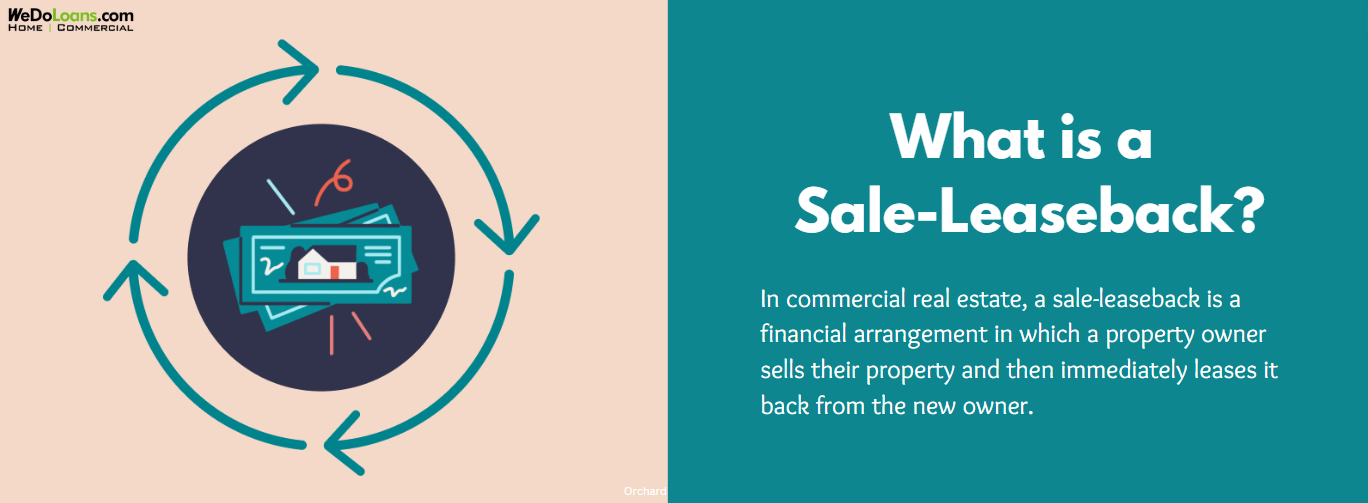
Owning commercial real estate can be a sound investment strategy, but it may not be ideal for every business or situation. Sometimes businesses own a building but prefer to focus on their core operations. In these cases, a sale-leaseback can be beneficial, allowing businesses to free up capital while concentrating on their primary activities.
What is a Sale-Leaseback?
A sale-leaseback is a transaction where a property owner sells their commercial real estate to an investor and then leases it back for a long-term period. The original owner becomes the seller-lessee or seller-tenant, and the investor becomes the buyer-lessor. This arrangement allows the seller-lessee to continue operating in the property while freeing up capital.
How Does a Commercial Real Estate Sale-Leaseback Work?
A typical sale-leaseback involves two main parts: the sale of the property and the subsequent lease agreement. The lease terms are usually long-term, ranging from 10 to 20 years, and include details such as rent, responsibilities, and other terms. The sale and lease are negotiated together, making the sale contingent on the lease agreement.
Why Opt for Commercial Property Sale-Leasebacks?
Sale-leasebacks can be advantageous for both sellers and buyers. Sellers can focus on their core business activities without managing real estate and can liquidate their equity to fund expansions or other investments. Buyers acquire a property with an established long-term tenant, ensuring immediate cash flow and potentially attracting other tenants.
Pros and Cons of Sale-Leasebacks
For Sellers:
- Pros:
- Liquidity: Converts real estate equity into cash for expansion, debt reduction, or other investments.
- Balance Sheet Improvement: Leasing can improve financial ratios, making the company more attractive to investors and lenders.
- Operational Focus: Businesses can focus on their primary activities without the burden of property management.
- Cons:
- Loss of Property Control: Sellers must adhere to lease terms and no longer own the property.
- Long-term Costs: Leasing may become more expensive than owning over time, and sellers lose out on property appreciation.
- Lease End Uncertainty: Buyers may not be obligated to renew the lease at the end of its term.
For Buyers:
- Pros:
- Stable Investment: Immediate long-term tenant and predictable income stream.
- Tenant Attraction: Established tenants can attract additional tenants, especially in specialized properties.
- Cons:
- Tenant Risk: Long-term lease with the seller creates risk if the tenant defaults or is difficult.
- Building Condition: Sellers might defer maintenance knowing the building will be sold, so buyers should conduct thorough inspections.
Example of a Sale-Leaseback
Consider a private medical practice that owns its building. Selling the building and leasing it back would allow the practice to focus on patient care while ensuring it retains its space. The investor, in turn, gains a reliable long-term tenant and can diversify with established medical real estate.
Tax Implications
Sellers should be prepared for capital gains tax when selling, but lease costs are typically deductible. For buyers, a sale-leaseback is like purchasing a property with an established long-term tenant, simplifying the tax situation.
Key Considerations Before Executing a Sale-Leaseback
- Lease Terms: Carefully negotiate lease duration, rent, and escalation clauses.
- Property Valuation: Ensure an accurate valuation for a fair sale price.
- Tenant Creditworthiness: Assess the financial stability of the seller-lessee.
Conclusion
Commercial real estate sale-leasebacks can offer significant benefits for both sellers and buyers, making it a win-win transaction in the right circumstances. Whether selling or buying property, consider if a sale-leaseback is the best approach for your commercial property transaction.
